Joshua Martoma is the 17-year-old co-founder and director of KidsMates Inc., a nonprofit he started with his siblings to channel awareness, resources, and policy for children with an incarcerated parent. His work has been recognized by the American Academy of Pediatrics, Childwelfare.gov, Forbes, and Yale University for pioneering strategies to help communities ravaged by mass incarceration. Outside of KidsMates, Joshua engages in social sciences research using statistical modeling and machine learning to improve public health and criminal justice outcomes in underserved communities. His predictive algorithms for criminal recidivism won him international, national, and state awards and scholarships. In his free time, Joshua enjoys playing squash, bowing his cello, and following the Boston Celtics!
What does “entrepreneurship” mean to you?
Joshua Martoma: There’s a quote attributed to Gandhi, “Be the change you wish to see in the world.” Ghandi didn’t say that exactly, but it’s still a good description of entrepreneurship. Entrepreneurs seek to change the world to fit their vision of reality. Entrepreneurs spring from everywhere and fit all different molds. They pursue ideas for profit, for social change, for freedom, for the arts, and for many other reasons. Usually, entrepreneurs must overcome some adversity to create change. Entrepreneurs fail, get up, and keep going. It is the struggle that defines entrepreneurship, not just the outcome.
Tell us about your first experience with entrepreneurship.
JM: My first experience with entrepreneurship started in my elementary school library when I was ten. I love reading. Back then, I was obsessed with Harry Potter. My mum found me a job in the library, restacking books.
Not everyone has such easy access to reading material. When I discovered that prison visiting rooms lacked many books, I wrote to a local warden asking if I could secure materials for his family visiting room. I thought parents and children connecting over good books during visits would be a fantastic way to bond. My father had just gone to prison, and we spent many visits talking about the same books we read while separated. Wouldn’t it be nice to actually hold those books in our hands as we discussed them? It took some convincing and creativity, but eventually, the warden agreed. My elementary school library donated the first batch of curated books.
Unfortunately, finding other supporters was more challenging. Many corporate charters restrict donations to a prison. I needed to blaze my own trail to find a wider audience. Thankfully, I discovered a byproduct of the digital revolution: many companies were replacing physical books with e-readers because of lower storage costs. I convinced some of these libraries to let me have their children’s books instead of disposing of them. My siblings and I culled through all those books and curated terrific collections for prison visiting centers. Ultimately, 23 of 36 states with federal visiting rooms received KidsMates books.
Even though our process wasn’t centered around profit, the entire experience was incredibly entrepreneurial and innovative. I stumbled upon a societal problem that needed solving. I brainstormed “win-win” solutions and secured “buy-in” from critical decision-makers. With my siblings’ help, I then created an organization to execute our vision. Many people think the entrepreneurial spirit is only about making money, but I believe it’s also about the drive and creativity to create monumental change.
What is your company’s origin story? What is the biggest reason you started your business? What did those early days look like and teach you?
JM: Like many Americans, I was unaware of our country’s mass incarceration problem before my father’s incarceration. However, as mentioned, I’m a reader, so I started reading everything about the topic immediately after my father left. I discovered that one in fourteen American children has had a parent in prison, so I recognized I was not the only one experiencing the devastating effects of parental incarceration. Incidentally, more recent studies have estimated that 1 in 2 Americans has had someone close incarcerated. Everyone probably knows someone who has been in jail, but they just may not know that the person was incarcerated. It’s a silent American epidemic.
KidsMates started from a simple idea that my siblings and I had to improve the prison visiting experience for families in our situation. In the early days, I faced a lot of “No’s.” “No” from organizations about donating books to prisons. “No” from prisons about allowing children’s books into prison visiting rooms. And many more “no’s”! I had to turn the “no’s” into “know” — “know” how to get prison officials to support my free book program; “know” how to get external support for the program; and many other “knows”. The experience taught me that a growth mindset could change even the bleakest outlooks and overcome vast rejection.
As an entrepreneur, you need incredible resolve because setbacks always happen. When our book program finally took off, COVID-19 hit, and prisons canceled visits nationwide indefinitely. Without the legal requirement to host social visits for prisoners, facilities no longer cared about free books. I pivoted online to connect with families panicked by the sudden loss of communication with incarcerated loved ones. The KidsMates “C.A.R.E.S.” adversity model originated during that stressful period and reflected our accumulated wisdom from our followers. The model was later published in an academic medical journal and used by the American Academy of Pediatrics for continuing pediatric medical education.
What do you wish you knew when you started? Is there anything you would do differently?
JM: I wish I knew that calling “audibles” is okay, if not required, during times of crisis. When I started soliciting book donations for my local prison visiting room, I thought I had planned everything–I even created a Dewey Decimal System for our books!–but my precise plans quickly unraveled for unexpected reasons. First, prisons feared book donations would create a path for contraband to enter the prison. After we ironed out the kinks with our first facility, I had to develop a system that would work in hundreds of facilities, recognizing that prisons are not monolithic organizations. More recently, when Covid-19 shut down in-person visits, I had to pivot from books to online resources. These changes felt impossible at times and required me to step into unfamiliar territory, but lessons learned became the lifeblood from which KidsMates matured. Recognizing that situations can change for better or worse in the blink of an eye, my best advice to my younger self and other aspiring entrepreneurs is to make detailed plans but adjust to the moment!
What does “success” look like for you? We’d love to hear your biggest, boldest dream. What do you think will help you achieve it?
JM: The United States is the world’s largest jailer. Twenty-five percent of the world’s prisoners reside in U.S. prisons and jails, even though America has only five percent of the world’s population. Nearly half of the people in U.S. prisons are parents to minor children, and 1 in 5 impacted children is age four or younger. To put that in perspective, the number of children with an incarcerated parent is larger than that of children with asthma. Unfortunately, it’s a silent epidemic because most children don’t know or don’t disclose a parent’s incarceration. In my biggest, boldest dream, I want incarceration to become as destigmatized as asthma so that support and resources can be easily channeled toward children in need. I want to improve the social determinants of health and well-being affecting impoverished children everywhere.
What is your superpower as an entrepreneur? What is your proudest and darkest moment so far? Share a key high and a key low from your journey if you can.
JM: My ability to move quickly and communicate passionately are central to my success as an entrepreneur. I can digest copious amounts of information and hone in on the critical levers of a problem. I act with empathy. Reflecting on KidsMates’ journey, these skills have been vital in achieving our goals.
Our darkest moment as a KidsMates team came when COVID-19 shut down prison visits and almost ended our book program overnight. Suddenly, our years of hard work building relationships and lobbying for change seemed to have no practical value. The silver lining came from our realization that families across the country were just as dislocated by these changes as we were. It was time for something new. This epiphany spawned my proudest moment – the KidsMates “C.A.R.E.S.” model for fostering resilience through parental incarceration. Though I’m still only in high school, I know that adversity does spare anyone. You can survive and thrive through adversity with the right tools and support. Through KidsMates, I have become a leader and a facilitator for helping others.
What are your personal driving principles, your top values?
JM: On a day-to-day basis, I devote hard work to all of my ventures, whether athletic, academic, musical, or entrepreneurial. Sometimes it’s hard to see the forest for the trees, so I force myself to commemorate every victory, especially small ones, and treat every setback as a learning opportunity.
At a high level, I remind myself that my actions have the potential to create real change and improve the social constructs that govern society. This principle is the driving force behind my work at KidsMates.
On an interpersonal level, I seek creative insights, authentic interactions, and emotional intelligence. I need passionate collaborators to help me push forward when inevitable setbacks arise. I want collaborators to push me toward the best version of myself every day.
How have your personal principles and values shaped your company’s values and principles?
JM: My siblings and I understand the pain of losing someone close to prison. There is no way to replace that empty feeling. It sucks. Our foundational values at KidsMates are to accept and embrace the unspoken hardships many of us experience during forced family separation. We are motivated to change that experience for future generations of children. My values are not different from my team, and our shared beliefs amplify my resolve.
One of the best recent examples of how my values have shaped KidsMates’ direction is the expansion of our organization into the foster care system. Upon learning that forty percent of children in foster care have been exposed to parental incarceration at some point in their lives, I asked myself how KidsMates could expand to help this similarly vulnerable population. Over the past year, KidsMates piloted local foster care programs offering holiday events and academic tutoring. At KidsMates, the recognition that our work can truly make a difference in the lives of children with an incarcerated parent motivates me every day!
What’s it like to work alone or with your partners?
JM: I co-founded KidsMates with my siblings. Working together on this critical mission has been a great way to build family unity. I’ve come to respect my younger sister and brother for their unique contributions to our organization. I feel like I won the sibling lottery. My happiest memories throughout our company’s existence revolved around different moments with my siblings. As our team expanded, I found joy in making genuine connections with others. Fortunately, my siblings are never shy about telling me when my ideas are off base, so we have good natural checks and balances!
At the same time, I also enjoy working solo on projects because of the control you can exert in shaping outcomes. By analogy, I used to play a lot of squash. That experience helped me realize that you are often alone on the court of life, even if supporters are cheering you on. You have to trust your instincts to survive and thrive. I’ve learned to trust my instincts and reassess during natural pauses in the action.
Do you have a mentor? Tell us about what makes them valuable to you and your business. What role does mentorship play in your world (as a mentor or mentee)?
JM: Yes, I am fortunate to have several positive role models who’ve helped me, just as I mentor other entrepreneurs through academic, research, musical, and entrepreneurial pursuits. My mentors are both sounding boards for new insights and a corrective force for problem-solving. Knowing that a mentor will review my work product keeps me focused and eager not to disappoint. My learning also accelerates by working with entrepreneurs who’ve been in similar situations to the ones I am facing. In the same way, I share experiences with my mentees so they can leap forward in their goals and aspirations.
What are you reading or have read?
JM: You’ll laugh, but I still re-read the Harry Potter series for fun. I’m on my 18th reading. Rowling’s characters comforted me when I lost my parent. Harry Potter overcame losing both parents, and the “Golden Trio” grew through adversity. We can all learn from that grit.
I like reading multiple academic books at the same time. Currently, I am reading Kelleher’s Fundamentals of Machine Learning for Predictive Data Analytics, Poverty by Matthew Desmond, and Monty Soutar’s Kāwai. Soutar is a Māori author from my mum’s native New Zealand homeland. I try reading as many Kiwi authors as possible and enjoy any book that grounds me.
Where do you go for inspiration?
JM: My local squash court, Google Scholar, and chess.com.
Do you have a favorite quote, mantra, or words of wisdom to get through the tough days?
JM: “Ehara taku toa i te toa takitahi, engari he toa takitini” – Success is not the work of an individual, but the work of many. (Maori whakatauki)
What is a problem that keeps you up at night?
JM: America cycles 9 million people through jails and 600,000 through prisons annually. Within three years, 68% of released individuals are rearrested, and over 50% are re-incarcerated. Impacted families are often caught in a revolving door between poverty and prison. These are not just abstract facts to me.
I was fortunate to have supportive caregivers help me avoid the worst outcomes facing children in my predicament. Understanding the drivers of mass incarceration became my focus, and I gravitated to predictive analytics, searching for intelligent and accurate conclusions to personal challenges with representative samples and automated procedures. By high school, I made inroads into studying how our criminal justice system uses data science to predict a defendant’s likelihood of reincarceration, also called recidivism. Most models are black boxes and focus on static factors, such as the age of first offense, to generate a “risk score.” These scores guide sentencing decisions. In contrast, I focused on interpretable models and dynamic factors affecting recidivism. Dynamic factors are fluid traits that could improve with resources or training.
What keeps me up at night is the idea that individuals who have gone through our criminal justice system are mislabeled for life without any chance of redemption or meaningful self-improvement during this forced warehousing period. Anyone who’s been to prison can routinely be deprived of employment, credit, and opportunities the rest of us take for granted. If America is truly the land of opportunity, Americans should be given a path to restore their rights and fundamental freedoms post-incarceration.
How do you think about helping others through your work?
JM: KidsMates focuses on fostering resilience in children facing adversities, such as parental incarceration, so our process for helping others is intimately tied to our mission. My social sciences research uses big data to tackle intractable problems like mass incarceration, criminal recidivism, or public health issues. Many of the predictive modeling strategies I employ in my research have broad utility in other disciplines, such as behavioral science and econometrics. In short, my pursuits directly benefit others and foster positive social change.
What advice do you have for fellow (and aspiring) entrepreneurs building and leading teams?
JM: Take a chance – you can’t score if you don’t shoot. Embrace mistakes – your biggest crises may pave the path to bigger successes! Accept internal differences – trust yourself and your teammates to rise above and produce superior outcomes. Engage strangers – people can surprise you if you let them.
What kind of an entrepreneur do you want to be known as – as in, what do you want your legacy to be?
JM: I want to identify and tackle social justice problems using computational tools and big data sets. If we can solve puzzles like America’s high recidivism rate or improve the social determinants of health for children facing parental incarceration, then there’s no end to what can be accomplished.
Many entrepreneurs continue to perfect their daily routines to support their work and greater vision; would you mind sharing your morning routine or a regular ritual that grounds your work each day?
JM: My schedule is pretty hectic, so I try to perfect the art of being resilient and ground myself in simple routines: Upbeat music to stimulate my endorphins, a monster to-do list to absorb my energy, and some quality downtime or sports with family and friends to recharge.
Do you have someone you’d like to nominate to be profiled in our Faces of Entrepreneurship series? Please let us know by emailing media@thecenter.nasdaq.org or submitting your nomination using this form.
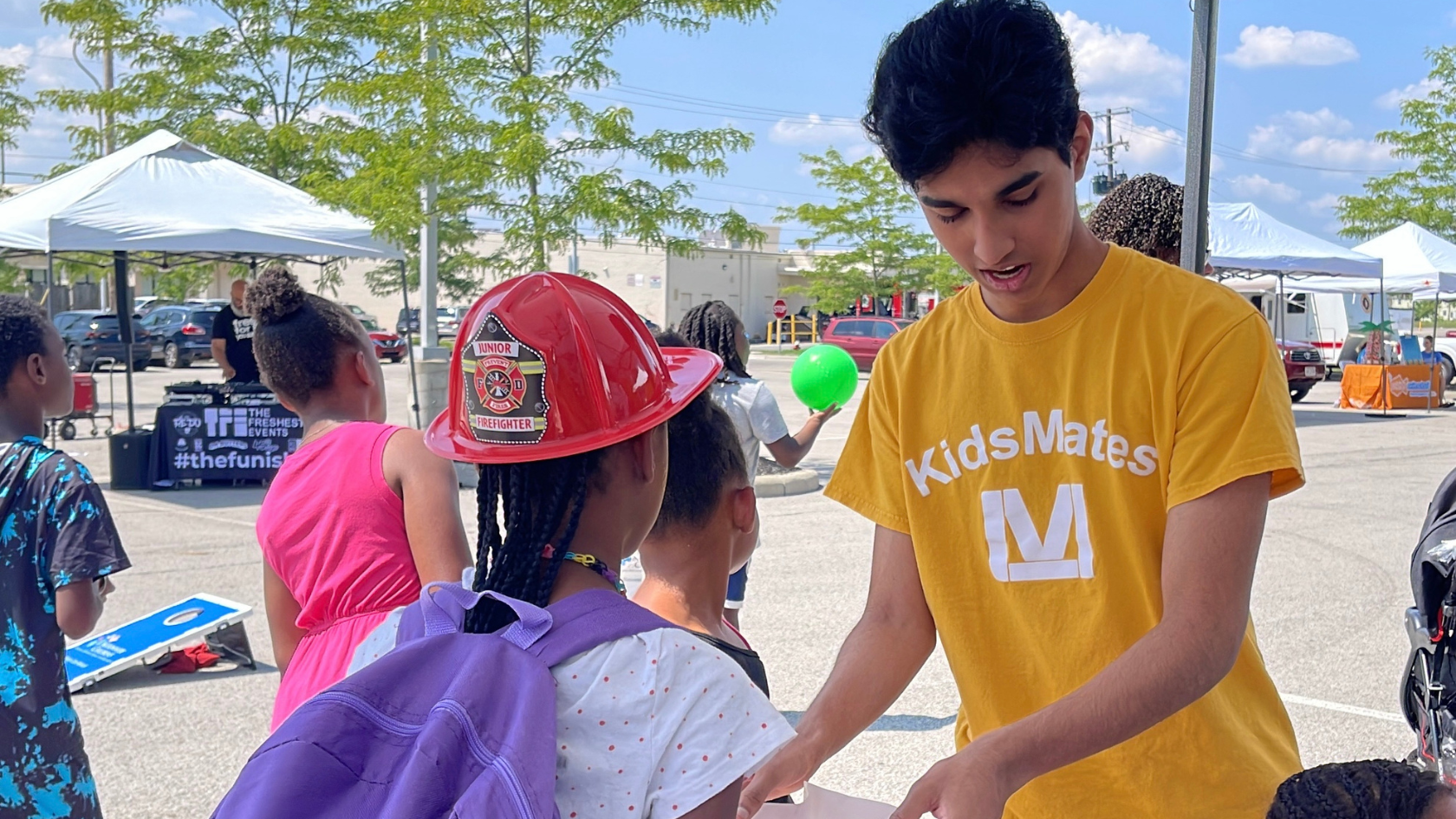
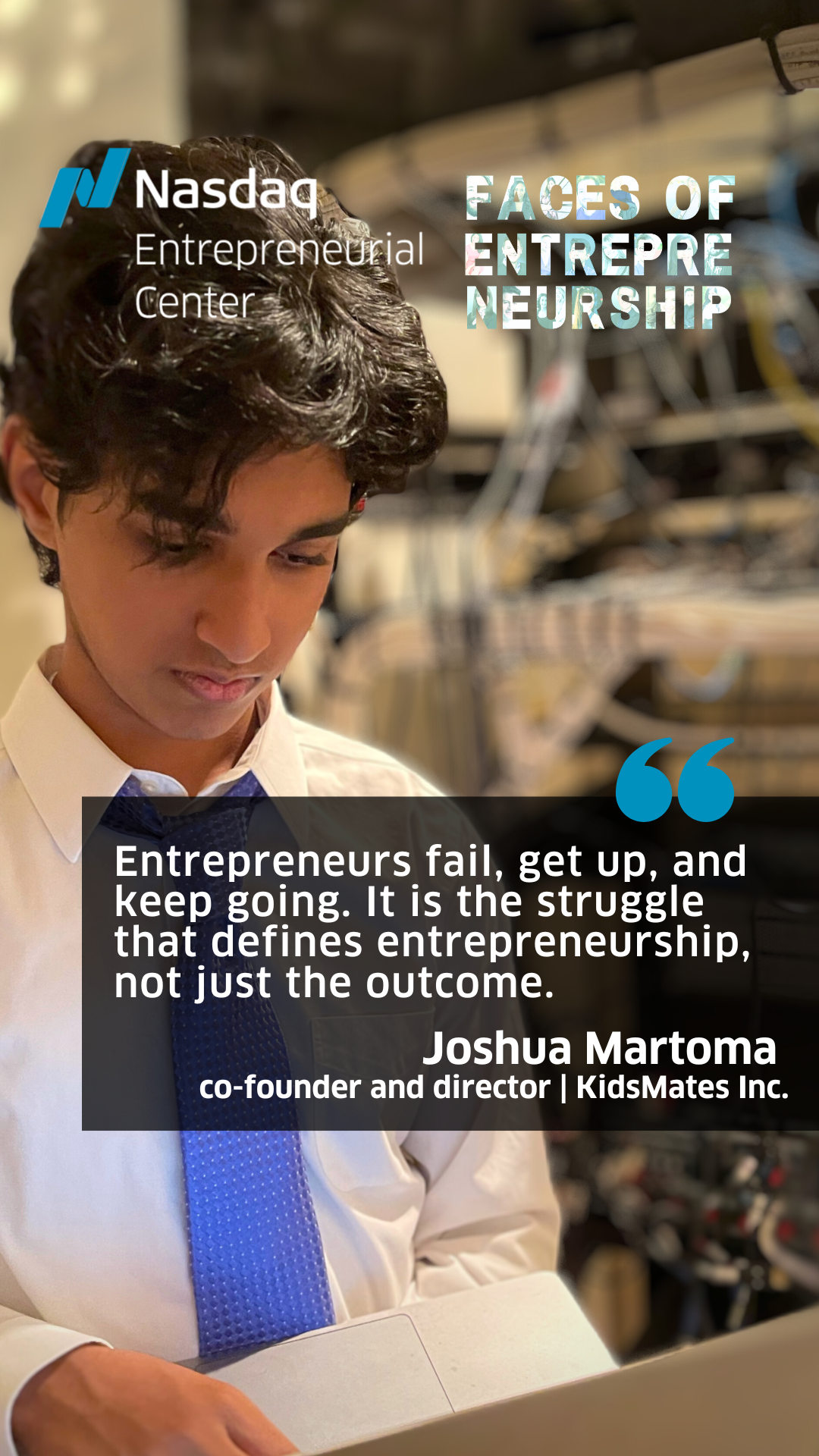
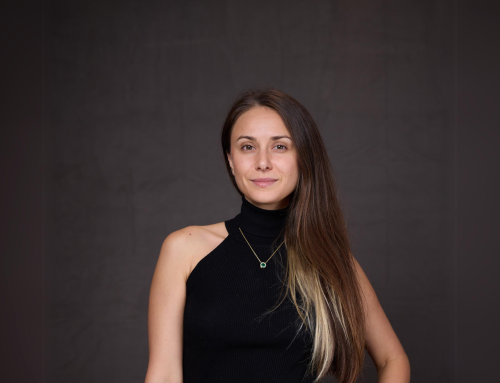
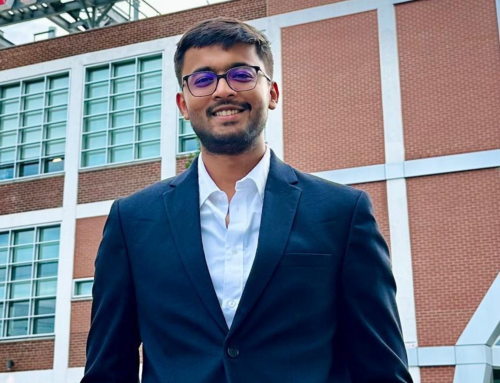
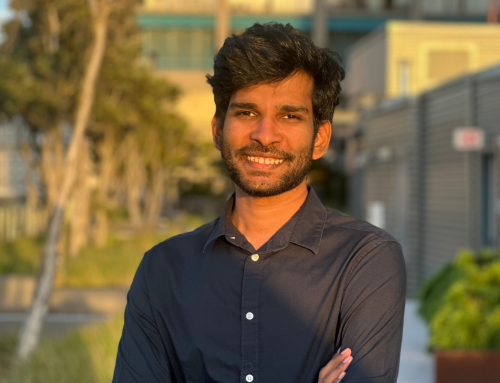
Invite a Friend
Close